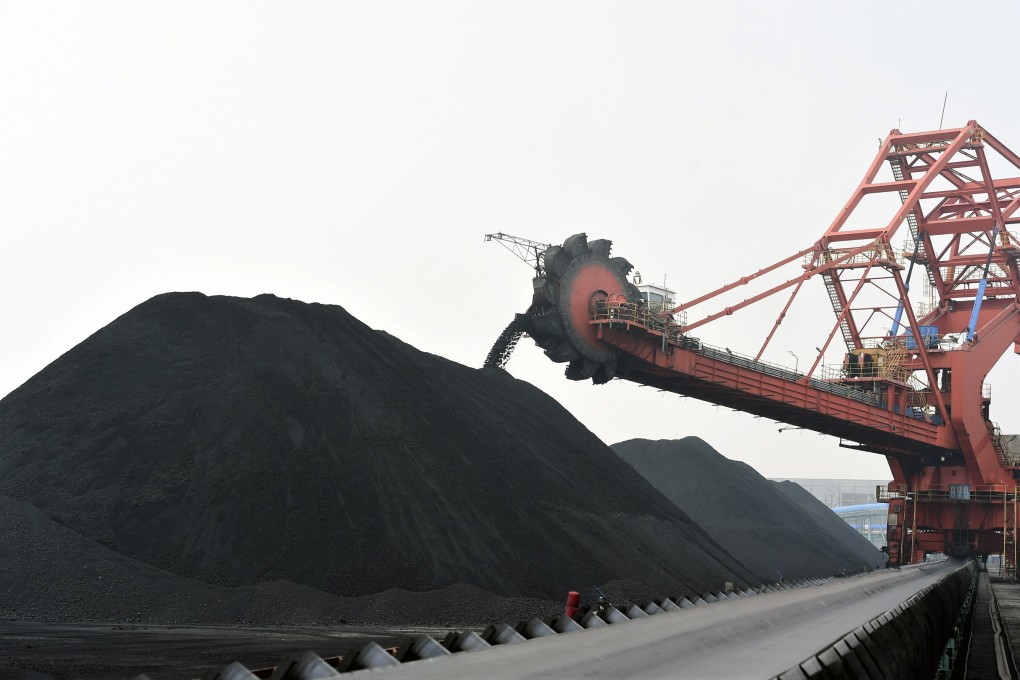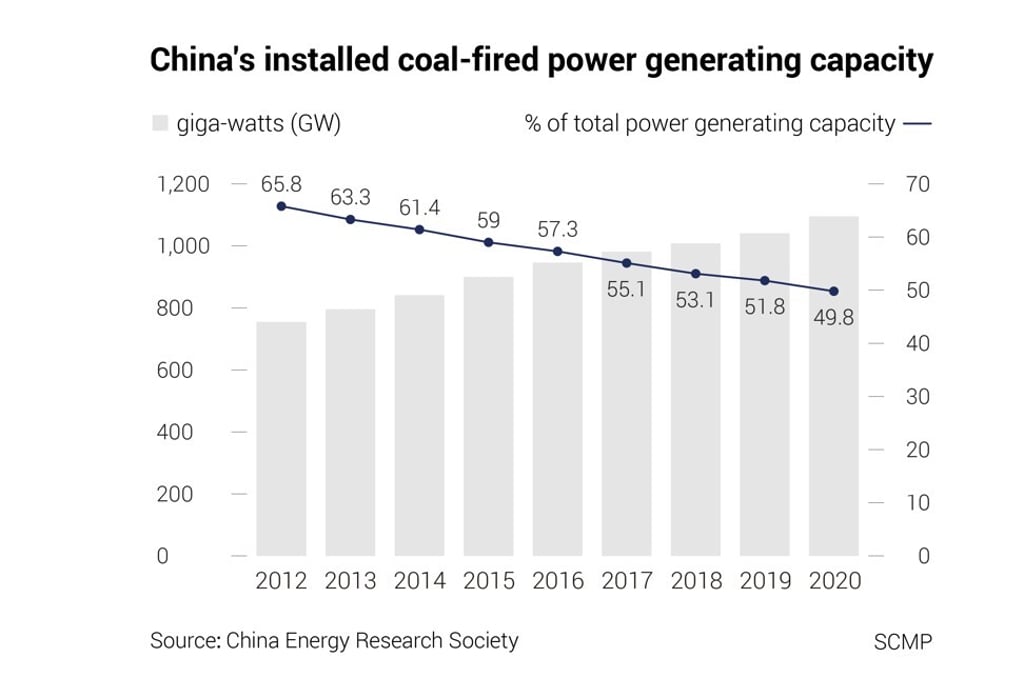Bull run in China’s coal stumbles after economic planner’s pledge to cool fuel prices, sending futures and mining stocks tumbling
- Twelve-month thermal coal futures for January 2022 delivery fell by their 8 per cent daily limit on the Zhengzhou exchange to 1,755.4 yuan each
- The shares of at least seven coal miners, including the state-owned China Coal Energy and Yanzhou Coal Mining, plunged by their 10 per cent daily limits on the Shanghai and Shenzhen stock exchanges

China’s coal futures and mining stocks tumbled after the top economic planning agency said it would rein in runaway fuel prices and ensure stable supply by coal-fired power plants ahead of the forthcoming winter months.
Twelve-month thermal coal futures for January 2022 delivery, the most actively transacted contracts for the fuel, slumped by their 8 per cent daily limit on the Zhengzhou Commodity Exchange to 1,755.4 yuan each. The shares of at least seven coal miners, including the state-owned China Coal Energy and Yanzhou Coal Mining, plunged by their 10 per cent daily limits on the Shanghai and Shenzhen stock exchanges.
The mood has soured suddenly on coal, after a meeting convened by the National Development and Reform Commission (NDRC) with major coal producers and the industry guild to find ways to restore fuel prices back to “a reasonable range” ahead of expected peak demand in the northern hemisphere winter.
